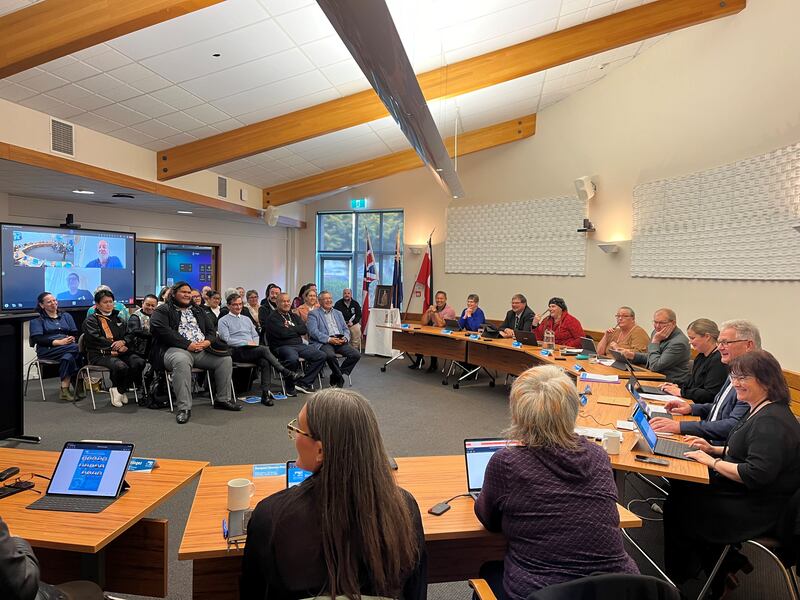Ruapehu District Council [RDC] and South Taranaki District Council [STDC] have both voted unanimously to retain their Māori wards and will hold a binding poll in next year’s local body elections.
This comes two days before councils had to let the government know if they were going to retain/affirm Māori wards or abolish them.
The Ruapehu council members said they weren’t in support of the poll and have asked their chief executive to provide further information on what would happen if the council didn’t hold it.
More than 130 people attended that meeting in the Taumarunui council chambers on Wednesday, listening to speakers from the public and debates among councillours on the matter.
Only one person spoke against retaining the Māori ward.
Ruapehu mayor Weston Kirton thanked those who spoke in the hui.
“I also want to acknowledge the relationship the council has with our iwi and the positive role of iwi leadership and their desire to move forward with us, which I want to be part of.
“As a council, we have moved a long way in the past few years in our engagement with our iwi and we want to see this momentum maintained.
“It is important we continue our journey here in Ruapehu. It is a work in progress, and we still have a lot to learn.
“Council remains committed to fostering unity and continuing its collaboration with iwi and the wider community to ensure fair representation and equity in local governance,” he said in a statement.
‘Māori wards have encouraged more Māori to participate’

South Taranaki mayor Phil Nixon expressed frustration at the requirement to revisit a decision that already met the requirements of the old legislation.
“Our council made the decision to introduce Māori wards in 2020, before the Labour government removed the right to demand a poll. At the time a demand for a poll was received but the demand did not meet the required 5% elector threshold and was not required.
“While we acknowledge the coalition government’s desire to restore the right to binding referenda, we feel strongly that any council that made a decision on Māori wards and fully completed the legislative process prior to the Labour government’s changes, should not have been made to go through this costly, time-consuming and politically divisive process again.”
He said the introduction of Māori wards in his district had been a positive enhancement to decision-making and enabled the councilto be more effective as a board of governors.
“As residents and ratepayers, Māori (who make up almost 20% of South Taranaki’s population) had been underrepresented and disengaged from the electoral and local democratic process for too long. Our move to Māori wards has encouraged more Māori to participate in the governance of our district and means the council is more representative of our whole community.
“Having diverse opinions at the council table helps us make the best decisions for all our communities. We are stronger as we work together in partnership for the good of South Taranaki – which is ultimately what we are all here for,” Nixon said.



